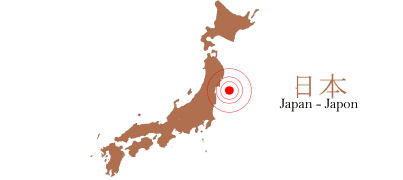
If you live in British Columbia, Canada, and you think that you will not be affected at all by the explosions of the nuclear power plants in Japan, please reconsider given the following reality checks.
- The pressure released at the plant of Daiichi No.1 reactor also released radiation into the atmosphere. Later, No.1 reactor exploded.
- The explosion happened at the No. 3 reactor, two days after a blast at the No. 1 reactor.
- For both reactor explosions, the explanations from the nuclear reactor officials given to Reuters news agency were very similar. Reuters reported: “The nuclear reactor is surrounded by a steel reactor container, which is then surrounded by a concrete building….The concrete building collapsed. We found out that the reactor container inside didn’t explode. We’ve confirmed that the reactor container was not damaged. The explosion didn’t occur inside the reactor container. As such there was no large amount of radiation leakage outside…At this point, there has been no major change to the level of radiation leakage outside (from before and after the explosion)…”
- Reuters reported: “An official at the agency said it has rated the incident at 4 under the International Nuclear and Radiological Event Scale. Three Mile Island was rated 5 while Chernobyl was rated 7 on the 1 to 7 scale.”
- “Jiji news agency said fuel rods at the No. 2 reactor had been entirely exposed and a fuel rod meltdown could not be ruled out.”
- “The plant operator confirmed there was little water left in the reactor.”
- Reuters reported: Reactor operator says the steam relief valve at Daiichi No.2 reactor has been opened to release pressure with the accompanying release of radiation into the atmosphere.
- Reuters reported: …”Japanese authorities as saying they are preparing to distribute iodine to people living near the stricken nuclear power complex. Iodine can be used to help protect the body from radioactive poisoning.”
- Reuters reported: “Water levels inside the Fukushima Daiichi complex’s No.2 reactor are almost empty,…. Jiji news agency says the operator of the plant has started injecting sea water to the reactor in the hope of cooling it down.
- Apparently, there are five more nuclear reactors that have been affected.
If a major wind storm blows from northern Japan all the way across the Pacific ocean to Hawaii and British Columbia, then coastal Canadians can receive the radiation via radiation drifts.
If there is a strong probability that Canadians can get these radiation drifts, should Canada distribute iodine pills immediately to people living in the coastal areas of British Columbia?
And should Canada also start radiological scanning of the coastal land and people to detect and determine radiation levels?
Apparently, from the news reports on the internet, about 90% of radiation on a person can be eliminated externally by discarding the contaminated clothing from the body and washing the whole body from head to toes with soap and water.
I hope the Rocky Mountains are tall enough as an impermeable barrier to any radiation drifts moving east so that the radiation will not blow over the Rocky Mountains and contaminate Canadian provinces east of British Columbia, if those radiation drifts arrive in British Columbia.
Please let us know what you think.
Are you worried about global contamination via radiation drifts? We would love to receive your comments.
British Columbia, Canada
NEWS RELEASE
| For Immediate Release 2011PSSG0031-000254 March 13, 2011 |
Ministry of Public Safety and Solicitor General |
Minister’s statement on radiological activity in Japan
VICTORIA – Minister of Public Safety and Solicitor General Rich Coleman issued the following statement today in response to the radiological situation in Japan.
“Health Canada has advised us that at the present time the current radiological activity at a facility in Japan is expected to pose no health risk to British Columbians.
“The Government of Canada, through the Government Operations Centre, is monitoring and assessing the situation at the Fukushima nuclear plant in Japan following reports of an explosion, in order to assess any potential risks to Canadians.
“Emergency officials in British Columbia remain in constant contact with the federal government’s operation centre which includes officials with Health Canada, the lead department responsible for coordinating Canada’s nuclear emergency response.”
For more information on Health Canada’s Federal Nuclear Emergency Plan visit: http://www.hc-sc.gc.ca/hc-ps/ed-ud/fedplan/intro-eng.php.
——————————————
You may also want to know:
